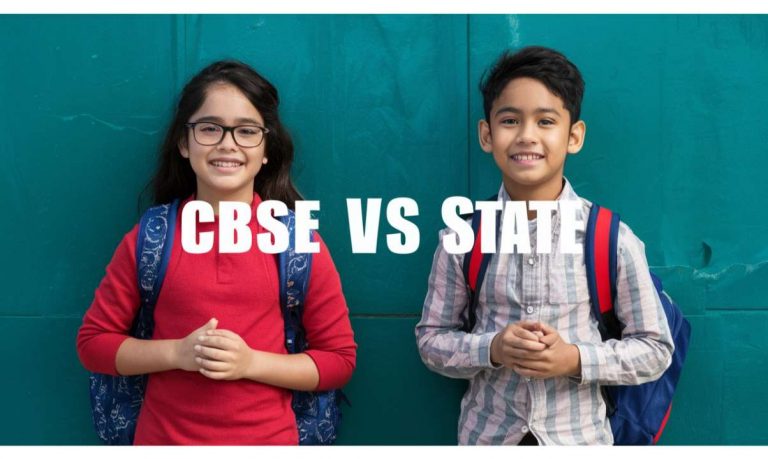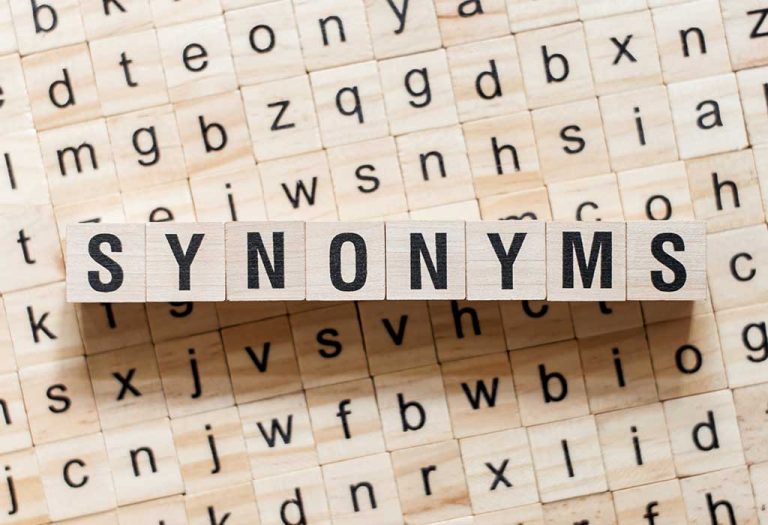CBSE vs State Board – Which Is the Better Option for Your Child?
While most of the dilemmas pertaining to parenthood might have ceased to matter, there still remain a few which can have a huge effect on the future of the child. Education is of utmost importance for any individual, as it can define how high your child progresses in life. The importance of education can never be understated.
One of the common problems faced by Indian parents is choosing the board of education their child is going to be a part of. Considering the multitude of options and schools available around the country, it can be a really hard decision. Some of the frontrunners include the Central Board of Secondary Education, Indian School Certificate Examination and the State board where the parents are based out of. State syllabus or CBSE syllabus which is best? While each one has its advantages, this article will try to compare CBSE and the State board in a general manner.
Let us try to settle it – CBSE or State Board, which syllabus is the best?
What Is the CBSE Board?
The Central Board of Secondary Education (CBSE) is one of India’s premier educational boards, established in 1962 under the Ministry of Education, Government of India. It oversees a vast network of affiliated schools across the country, offering a standardized curriculum that ensures uniformity and consistency in education. CBSE emphasizes conceptual learning over rote memorization, aiming to develop critical thinking and problem-solving skills in students. The board is also known for its comprehensive syllabus, which is regularly updated to stay current with educational trends and requirements. This makes CBSE an ideal choice for students aiming for higher education, as it aligns well with national entrance exams for prestigious institutions like AIIMS, IITs, and NITs.
What Is State Board?
State Boards are educational boards established by individual state governments in India to administer and manage school education within their respective states. Each state has its own board, such as the Maharashtra State Board of Secondary and Higher Secondary Education (MSBSHSE) or the Tamil Nadu State Board. These boards design their own curriculum, syllabus, and examination systems, which can vary significantly from state to state. State Boards typically focus on regional and state-specific educational requirements, including language studies and cultural education pertinent to the state. The evaluation and grading systems are also controlled by the state education departments, which can lead to variations in difficulty levels and marking standards. While State Boards offer more localised education, making it easier for students to connect with their immediate environment, they might not be as uniformly recognized across the country compared to national boards like CBSE.
Key Differences Between CBSE and State Board
Both the Central Board of Secondary Education (CBSE) and the various State Boards have distinct features and cater to different educational needs. Here, is the comparison between CBSE and State boards based on several criteria to help you make an informed decision.
1. Syllabus
CBSE
Is state syllabus easier than CBSE? CBSE syllabus is structured to promote a conceptual understanding of subjects. The textbooks are designed to be student-friendly, incorporating questions and activities that facilitate comprehension. This approach aims to foster a sustainable and in-depth understanding of topics.
State Board
State Board syllabi vary significantly across different states. They are often more content-heavy, with textbooks that may be difficult to read due to an overload of details and facts. The focus is more on rote learning rather than conceptual clarity.
2. Learning Approach
CBSE
CBSE emphasizes conceptual learning. The exam questions are designed to test the students’ understanding of concepts rather than their ability to memorize text. This encourages students to grasp the underlying principles and apply their knowledge.
State Board
State Boards tend to emphasize memorization. The exams often require students to recall detailed information from the textbooks, promoting a system of rote learning. This can lead to students focusing more on memorizing content rather than understanding it.
3. Higher Education Opportunities
CBSE
CBSE provides a significant advantage for students aiming for higher education in prestigious institutions. Entrance exams for medical and engineering courses, such as those for AIIMS, IITs, and NITs, are based on the CBSE syllabus. This alignment prepares students effectively for these competitive exams.
State Board
State Boards may not offer the same level of preparation for national entrance exams. However, some states provide opportunities based on board exam performance alone, which can be advantageous for students who excel in these exams.
4. Examination and Evaluation
CBSE
CBSE exams are generally more challenging compared to State Board exams. The evaluation process is stringent, making it harder to score high marks. However, the marks obtained in CBSE exams are often regarded with high value due to the rigorous assessment standards.
State Board
State Board exams are often easier, and the evaluation is controlled by the state governments, making it more common for students to score higher marks. This can be beneficial for students aiming for high scores in their board exams.
5. Syllabus Updates
CBSE
The CBSE syllabus is updated regularly to stay current with educational trends and requirements. This ensures that the curriculum remains relevant and uniform across all schools affiliated with the board.
State Board
State Board syllabi are updated less frequently and can vary widely from one state to another. The importance and content of the syllabus depend on the specific state’s educational policies and priorities.
Pros and Cons of CBSE and State Board
Both the Central Board of Secondary Education (CBSE) and State Boards offer distinct advantages and disadvantages based on their structure, curriculum, and examination systems. Understanding the pros and cons of each can help you make an informed choice that best aligns with your child’s educational needs and future goals.
Pros of CBSE
- CBSE provides a standardised curriculum across all affiliated schools, ensuring consistency in education and making it easier for students to transfer between schools.
- The CBSE syllabus focuses on understanding concepts rather than rote memorization, which helps develop critical thinking and problem-solving skills.
- CBSE aligns closely with national entrance exams for higher education, such as those for IITs and AIIMS, providing students with a strong foundation for these tests.
- The CBSE syllabus is frequently revised and updated to keep pace with educational advancements and current trends, ensuring that students receive a relevant and modern education.
Cons of CBSE
- The rigorous curriculum and competitive examination process can create significant stress and pressure on students, particularly for those preparing for national entrance exams.
- CBSE’s uniform curriculum may not address specific regional languages, cultures, or local issues, potentially making it less relevant for students in diverse regions.
- The standardized approach of CBSE might not cater to the diverse learning needs and educational contexts of all students, potentially leaving some students struggling with the pace or style of the curriculum.
Pros of State Board
- State Boards offer curricula that are tailored to local languages, cultures, and regional issues, making education more relevant and connected to the students’ immediate environment.
- The syllabus often includes content that is specific to the state’s history, geography, and socio-economic context, providing students with a deeper understanding of their local surroundings.
- State Board exams may be perceived as less competitive compared to CBSE, potentially reducing stress and allowing students to focus more on learning without intense pressure to perform on national-level exams.
- State Boards often provide a more flexible approach to education, accommodating diverse learning styles and educational needs within the state.
Cons of State Board
- The quality of education and examination standards can vary significantly from one state to another, leading to disparities in educational outcomes.
- State Board curricula might not align as closely with national entrance exams, which can be a disadvantage for students aiming to pursue higher education in prestigious national institutions.
- State Board syllabi are updated less frequently compared to CBSE, which may result in a curriculum that is less aligned with current educational trends and advancements.
FAQs
1. How does the CBSE board address students with special needs?
The CBSE board provides various accommodations for students with special needs, including extra time for exams, use of assistive technologies, and tailored support to ensure equitable access to education. These provisions aim to create an inclusive learning environment and support diverse learning requirements.
2. Are there significant differences in the grading systems between CBSE and State Boards?
Yes, there can be notable differences in grading systems. CBSE uses a grading system based on a Cumulative Grade Point Average (CGPA) to provide a broader assessment of student performance, whereas State Boards often use a percentage-based system, which can vary in its grading criteria from state to state.
3. How does the focus on extracurricular activities differ between CBSE and State Boards?
CBSE schools typically have a structured approach to extracurricular activities, integrating them into the curriculum to foster overall development. In contrast, State Boards may vary in their emphasis on extracurriculars, with some focusing more on academic content and others providing a wider range of activities depending on regional priorities.
4. What are the challenges faced by students transitioning from a State Board to CBSE?
Students transitioning from a State Board to CBSE might face challenges such as adapting to a new curriculum that emphasizes conceptual understanding and a different examination pattern. The shift may require additional effort to align with the CBSE’s teaching methods and assessment criteria.
We hope the above information answers your question – CBSE or state board which is better for future? Choosing the right board can definitely be extremely important for your child, in the long run. However, it does not mean that that is the only thing that matters in the development of your child- there are plenty of people who have been successful even after studying in the state board. It all depends on the attitude and capabilities of your child, more than the board itself. However, the better choice would be to go for CBSE over state board for the long-term development of the child.
Also Read:
IGCSE vs CBSE
ICSE vs CBSE Board
RTE School Admission
List of Best Education Boards in India
No Detention Policy in Education – Pros & Cons
Tips for Choosing the Best School for Your Child
Was This Article Helpful?
Parenting is a huge responsibility, for you as a caregiver, but also for us as a parenting content platform. We understand that and take our responsibility of creating credible content seriously. FirstCry Parenting articles are written and published only after extensive research using factually sound references to deliver quality content that is accurate, validated by experts, and completely reliable. To understand how we go about creating content that is credible, read our editorial policy here.














.svg)
















